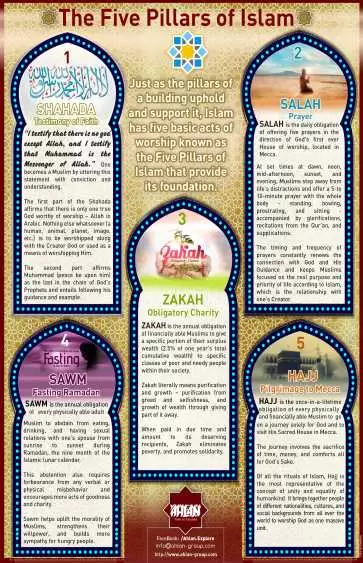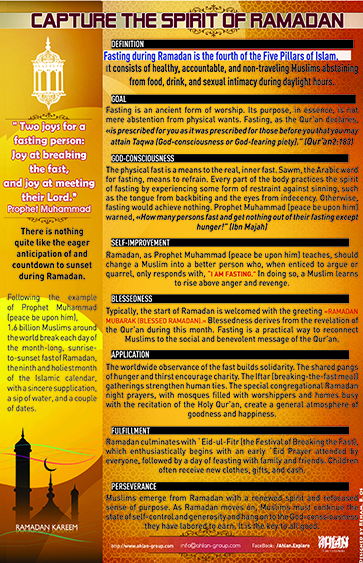You’ll find the Injeel (Gospel) mentioned 12 times in the Quran. What many might not realise is that Muslims do believe in the divine origin of the scriptures that preceded the Quran. The Quran talks about prophets and revelations that came before, showing that they’re all connected. The question, therefore, isn’t about belief in the idea of earlier scriptures, but about the integrity of the texts as they exist today.
We Muslims don’t just dismiss the Bible, nor do we accept it entirely in the way some might assume.
To understand this perspective, we need to step back and consider a few key Islamic principles.
Firstly, Islam, at its core, is not a new religion in the sense of being entirely detached from what came before.
We believe in One God, the same God worshiped by prophets throughout history. Think of Adam, Noah, Abraham, Moses, and Jesus – all are prophets in Islam sent by Allah to guide humanity. The Quran mentions many of these prophets and their scriptures, as we will see.
Does Islam Believe in the Bible?
From this perspective, the answer is yes, Islam does believe in the Bible in its original, unadulterated form.
We, Muslims, absolutely believe in the original, unadulterated messages revealed to Moses and Jesus. We believe that these scriptures, in their pristine form, contained pure guidance, wisdom, and the same fundamental message of submission to the One God that the Quran teaches. Believing in the bible is a fundamental pillar of Muslim’s faith. As the Quran clearly states:
“Say, ‘We believe in Allah and that which has been sent down to us and that which has been sent down to Abraham, Ishmael, Isaac, Jacob, and the Descendants, and that which was given to Moses and Jesus and that which was given to the prophets from their Lord. We make no distinction between any of them, and we are Muslims [in submission] to Him.'”
We also read in the Quran:
“The Messenger has believed in what was revealed to him from his Lord, and [so have] the believers. All of them have believed in Allah and His angels and His books and His messengers, [saying], ‘We make no distinction between any of His messengers.’…'”
And in other verses the Quran states the names of some of these scriptures, including:
- The Torah (Tawrat): Revealed to Prophet Moses (Musa).
- The Psalms (Zabur): Revealed to Prophet David (Dawud).
- The Gospel (Injil): Revealed to Prophet Jesus (Isa).
“…He has sent down upon you, [O Muhammad], the Book in truth, confirming what was before it. And He revealed the Torah and the Gospel. Before, as guidance for the people…”
The Quran acknowledges these scriptures as originating from Allah. Consider this verse:
“And We sent, following in their footsteps, Jesus, the son of Mary, confirming that which came before him in the Torah; and We gave him the Gospel, in which was guidance and light and confirming that which preceded it of the Torah as guidance and instruction for the righteous.”
As you see, this verse clearly state that the Gospel (Injil) given to Jesus was a divine revelation, a source of “guidance and light.”
“and to David We gave the book [of Psalms].”
This is also confirmed by a hadith narrated by Omar ibn Al-Khattab (may Allah be pleased with him):
that Gabriel said to the Prophet (PBUH): Tell me about faith. The Prophet said, “Faith is to believe in Allah, His angels, His books, His messengers, the Last Day, and to believe in providence, its good and its evil.”
It is established from these proofs, and by the scholarly consensus (Ijma’), that denying the divine origin of these books is considered disbelief (kufr) and takes one outside the fold of Islam, provided the person has been properly informed of the truth.
So, if Islam acknowledges these previous scriptures, where does the difference lie?
The Concept of Tahrif (Alteration / Corruption)
The core of the Islamic perspective here revolves around the concept of tahrif, which means alteration or distortion. We Muslims believe that the original revelations given to Moses, David, and Jesus were indeed from Allah, BUT the texts as they exist today have been subject to human alteration over time.
This isn’t an accusation made lightly. It’s based on both internal evidence (inconsistencies and contradictions within the texts themselves) and historical analysis (Perhaps we’ll get to it in a later article).
The Quran describes how some people deliberately distorted the words of these earlier scriptures:
“Of the Jews there are those who distort words from their [proper] usages…”
And:
“And indeed, there is among them a party who alter the Scripture with their tongues so you may think it is from the Scripture, but it is not from the Scripture. And they say, ‘This is from Allah,’ but it is not from Allah. And they speak untruth about Allah while they know.” (Quran 3:78)
As Imam Ibn Kathir explained these verses refer to the deliberate alteration and misrepresentation of Allah’s words by some among the Jewish community to mislead others.
It’s important to understand what Muslims believe has been altered is not necessarily that entire books were fabricated. Rather, the belief is that, over centuries of transmission, copying, and translation, changes crept in. Tahrif can manifest in several ways, including:
- Changes in wording: Adding, removing, or altering words.
- Misinterpretation of meaning: Keeping the words but twisting their intended meaning.
- Concealment: Hiding or suppressing parts of the scripture.
What Does Islam Believe About the Bible?
Islam believes only in the original divine revelations contained in the Bible in its unadulterated form, BUT it also believes that those a lot of these texts have been changed over time.
So, if Islam affirms previous scriptures, why does it not adopt the Bible as a source of law?
Why Don’t Muslims Follow the Bible?
The Quran answers:
“And We have revealed to you, [O Muhammad], the Book in truth, confirming that which preceded it of the Scripture and as a criterion over it.”
The Quran is the ultimate “criterion” to judge earlier texts.
So, Islam does not use the Bible (as it currently exists) as a source of Law because:
- Later revelations (Quran) abrogate earlier ones.
- The Bible’s text is considered altered (tahrif), lacking the certainty of preservation found in the Quran.
- The Quran and Sunnah are considered complete and sufficient for all aspects of life.
- Islamic law (Sharia) is a specific system of jurisprudence based on the Quran and Sunnah.
- The prophetic mission of Muhammad (PBUH) is considered final and universal.
It’s a matter of prioritizing the final, complete, and perfectly preserved revelation (the Quran) and the teachings of the final prophet (Muhammad, PBUH) as the authoritative sources of guidance.
This doesn’t negate the value or importance of the previous prophets or their original messages, but it places them within the larger context of the final revelation.
If Islam does not adopt the Bible as a source of law, how does a Muslim approach the Bible?
How Do Muslims Approach the Bible?
We Muslims treat the Bible with respect, recognizing its historical and religious significance.
We accept as divinely revealed those parts of the Bible that are confirmed by the Quran.
And we reject any parts that clearly contradict the fundamental principles of Islam, as established by the Quran and the authentic teachings of the Prophet Muhammad (PBUH).
For matters not explicitly addressed in the Quran or authentic Sunnah, we neither affirm nor deny them. We adopt a position of neutrality.
If you’d like to read more about Islam and comparative religion, based on trustworthy sources (and not misleading propaganda), please visit our blog.













